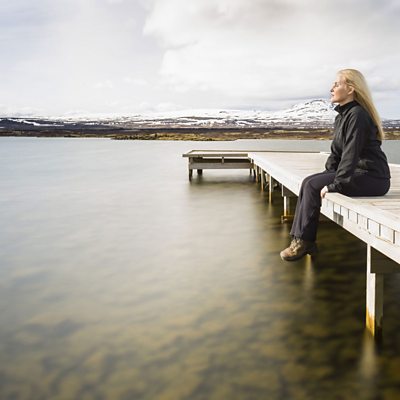Episode details

Radio 4,3 mins
For вҖҳthe way we do anything,вҖҷ as the writer Richard Rohr puts it, вҖҳis probably the way we do everything.вҖҷ Brian Draper 28/01/17
Thought for the DayAvailable for over a year
"Choose life." ItвҖҷs a phrase that sticks, from that monologue in the film Trainspotting that stuck two fingers up to what it perceived to be the vapid consumerist lifestyle of the mid-1990s. вҖңChoose life, choose a career, choose a family, choose a ... big television...вҖқ Those ironic lines captured a mood - a frustration, a hunger for something more to life than вҖңcompact discsвҖқ and вҖңmatching luggageвҖқ. They were plastered on student posters, and become so iconic that we were treated to John HumphrysвҖҷ own tribute this week, ahead of the release, 21 years on, of the Trainspotting sequel. The вҖңchoose lifeвҖқ mantra itself referred back to the anti-drugs slogan of the 1980s. The thorny question in Trainspotting seems to be вҖңWhat life is there then to choose which can satisfy the deep yearning we may have for it? So when the choice (or anti-choice) is for the drug heroin, as it is for Ewan McGregorвҖҷs character Mark Renton in the first film, weвҖҷre reminded that the energetic quest for life itself can be scarily hard to navigate or satiate. And surely it continues ever to be thus. I spoke at an event for young people this week, and asked them about the benefits of being a teenager today. One answered, вҖңThe amount of choice we have to decide what to do with our life.вҖқ Then I asked about the down-sides. Another answered straight away, вҖңThe amount of choice we have to decide what to do with our life ...вҖқ. This idea of вҖңchoosing lifeвҖқ at all may seem like a first-world problem, of course - but in fact it far precedes the contemporary consumerist mindset, and therein may lie a clue as to the true nature of the choice we face. In the Bible, we encounter Moses telling the Israelites (on GodвҖҷs behalf): вҖңSee, I have set before you life and death... Now choose life, so that you and your children may live.вҖқ This вҖҳchoiceвҖҷ, I believe, is not about creating the kind of life I want, but about living the kind of life God wants for me, which is always and forever the life of love. For it is love that helps to navigate, and it is only love, ultimately, that truly satiates. And while we may fear getting the big choices wrong in life, we can alternatively choose a life of love within each of the smallest moments we face - the way we listen to a friend, or respond to provocation, or play with our children ... small things which will all add up, in the end, to the life we have indeed chosen. For вҖҳthe way we do anything,вҖҷ as the writer Richard Rohr puts it, вҖҳis probably the way we do everything.вҖҷ It is our choice.
Programme Website